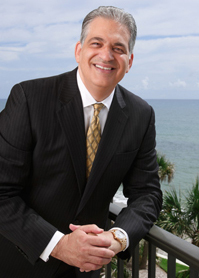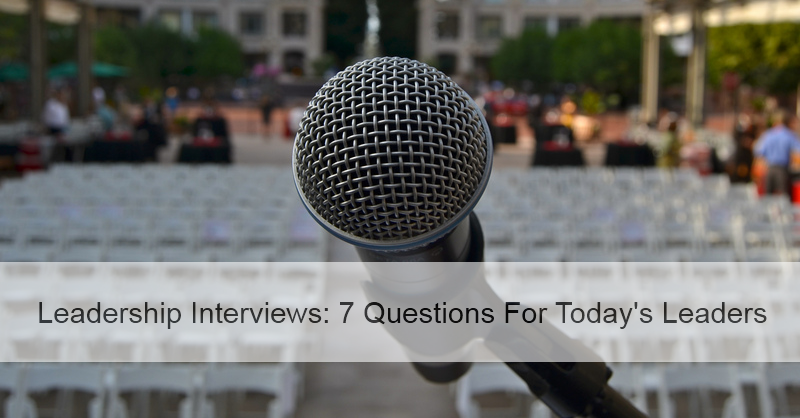As part of my leadership styles interview series, I’m excited to now feature the best-selling author and international leader, Bob Burg.
[stextbox id=”custom”] Besides being a fantastic author, Bob blogs and shares information on topics vital to the success of today’s businessperson. He speaks for corporations and associations internationally, including fortune 500 companies, franchises, and numerous direct sales organizations. He regularly addresses audiences ranging in size from 50 to 16,000 — sharing the platform with notables including today’s top thought leaders, broadcast personalities, Olympic athletes and political leaders including a former United States President. His most recent book, The Go-Giver, is a bestseller and certainly worth the read. Be sure to follow him on Twitter, Facebook, and LinkedIn.[/stextbox]
Besides being a fantastic author, Bob blogs and shares information on topics vital to the success of today’s businessperson. He speaks for corporations and associations internationally, including fortune 500 companies, franchises, and numerous direct sales organizations. He regularly addresses audiences ranging in size from 50 to 16,000 — sharing the platform with notables including today’s top thought leaders, broadcast personalities, Olympic athletes and political leaders including a former United States President. His most recent book, The Go-Giver, is a bestseller and certainly worth the read. Be sure to follow him on Twitter, Facebook, and LinkedIn.[/stextbox]
Each of the leaders featured in my leadership style interview series was asked to provide their own unique answers to seven specific questions. Bob’s answers are located under each of the questions below. Be sure to leave a comment at the end of this article about which of Bob’s answers you found most fascinating…and why.
- How do you personally define leadership?
- In your opinion, what makes a successful leader stand out from the crowd of mediocrity?
- What was the defining moment(s) in your life that caused you to focus on personal development in order to become a more effective leader?
- Which areas of personal growth are your main strengths and which are your weaker ones?
- What habits have you included in your daily routine to strengthen your leadership skills?
- If you could travel back in time and speak with your “younger self, what would you encourage your “younger” self to change, alter or focus on more?
- What advice would you give to someone who wanted to become a more influential leader in their niche or organization?
 1) How do you personally define leadership?
1) How do you personally define leadership?
I define leadership exactly as I define influence: as “the ability to move a person or persons to a desired action; usually within the context of a specific goal.” However, while I believe that is a legitimate definition of leadership, I don’t believe it is its essence. In my opinion, the essence of leadership/influence is “pull.” It’s an attraction. Powerful, effective leaders/influencers attract people – to themselves and to their ideas. And, they do this not through *push* but through pull. Effective leaders know that while push can elicit compliance, pull brings with it a strong sense of commitment. And, as my dear friend, Leadership Authority, Dondi Scumaci says, “Compliance will *never* take you where commitment can go.”
2) In your opinion, what makes a successful leader stand out from the crowd of mediocrity?
Successful leaders are able to communicate that their focus is on benefitting those they are leading. In his classic, “How to Win Friends and Influence People” Dale Carnegie taught us that, ultimately, “people do things for *their* reasons, not our reasons.” So, successful leaders constantly question themselves, “How does what I’m asking this person to do align with *their* goals, wants, needs, desires, and values.” And, through their words, actions and character, they are able to effectively communicate that as being their focus. As my friend and coauthor, John David Mann says, “Leadership is never about the leader.”
3) What was the defining moment(s) in your life that caused you to focus on personal development in order to become a more effective leader?
For me, personal development was – at first – not about leading others, but simply becoming a more effective human being. It was more about self-leadership than leading others. However, while I was effective as a producer (in sales) I realized that I was not an effective leader. Once I realized that, I began to make a study of leadership. Fortunately, there was (and is) lots of terrific information out there on this topic and I’ve benefited greatly from it. I only hope that those I’ve been privileged to lead and develop as leaders feel the same way.
4) Which areas of personal growth are your main strengths and which are your weaker ones?
My main areas of strength are the ability to communicate with tact and empathy and to help others to genuinely feel good about themselves. I’ve studied this on a constant and continual basis. More than anything though, I was very fortunate to learn from a *master* in this regard. My Dad, Mike Burg is the best I’ve ever known in terms of genuine and authentic people skills. He has always brought out the best in everyone whose lives he has touched. I try and emulate him the best I can. Truly, he is my mentor. In terms of my weaker areas, I’d have to say I continually struggle with procrastination and a lack of focus. I tend to see lots of shiny objects in front of me and have to remain aware of this. I am also way too impatient in terms of progress.
5) What habits have you included in your daily routine to strengthen your leadership skills?
Aside from reading something on Leadership every day, hopefully, I remember to look for opportunities on a daily basis to provide support and encouragement to others.
6) If you could travel back in time and speak with your “younger self, what would you encourage your “younger” self to change, alter or focus on more?
It wasn’t until my late twenties that I began to really study personal development. Until then, I didn’t realize the importance of learning from others and modeling their successes. I would tell my younger self…”don’t think you are smart enough to re-invent the wheel or that there is even a need to do so. You aren’t…and there isn’t. Be a constant and continual student. Learn the fundamentals, and learn them from those who have already mastered them. Then – and only then – can you begin to get creative.” Hopefully my younger self would listen to me. However, he might not have. 😉
7) What advice would you give to someone who wanted to become a more influential leader in their niche or organization?
Begin to study the masters in the field; both your niche field and in the field of Leadership (many of whom are in the list Charles Specht put together) and apply what you learn from them. Also, if there is someone within your organization (or, even outside) from whom you can learn as part of a mentor/protegé relationship, that would be terrific, and serve you, as well as those you eventually lead, very well.


Bob, thanks for the interview!
I appreciated your definition of leadership: “the ability to move a person or persons to a desired action; usually within the context of a specific goal.”
Charles, thank you so much for having me as one of your interviewees. VERY honored, my friend!
It’s my pleasure, Bob. Thank you!
Great interview and insights!!!
Thank you, Dan. Very appreciated!
Your welcome Bob. I’ve heard great things about your book and plan on reading it soon. I hope we can connect more.
Thank you, Dan. If you get a chance to read it, I hope you enjoy it and find it to be of value. Look forward to connecting with you, as well.
Yes, I’m going to try to read it very soon as well.
Very cool, Charles. I hope you enjoy it, as well!
Hi Bob,
Really enjoyed your answers and I can so relate to number 4, shiny objects lol. I also want to say when you spoke to our Team (LIFE) a couple of years ago, it was awesome! I am glad to follow you on twitter!
Thank you
Hello Bob, and thanks for stopping by. I haven’t had the privilege of hearing Bob speak/teach in person myself. Can you remember one main thing he said that impacted you? What was it?
Jeff, what a kind and terrific compliment! thank you.